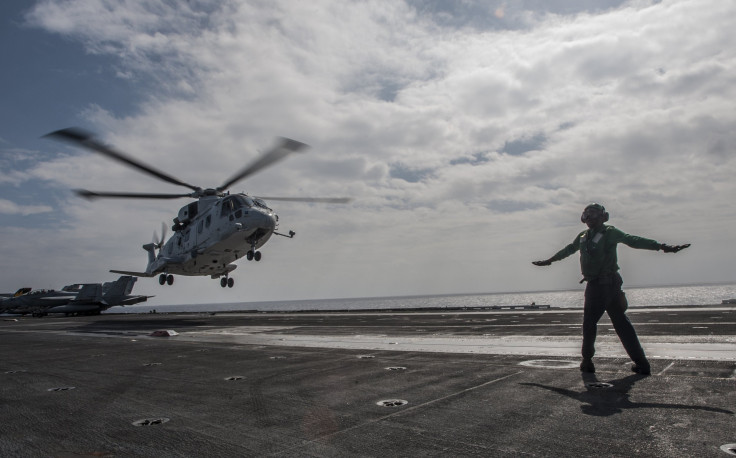Washington Asks US Carriers To Comply With China’s Air Defense Zone Rules

Update 4 p.m. EST: Japan has asked the global civil aviation agency to look into whether China’s newly declared “air defense identification zone” could endanger civilian airliners, the Foreign Ministry said Sunday morning.
The ministry said it had submitted a proposal for the Montreal-based International Civil Aviation Organization, to examine whether China's move could threaten the order and safety of international aviation. Though the ICAO has no binding enforcement powers, Japan seems to be hoping that the heightened international scrutiny will force China to back off its declared intent to control the airspace with military measures if necessary.
Update 3:20 p.m. EDT: American and Delta airlines have begun complying with China's demand, Reuters reports.
Original story:
U.S. commercial airlines have been advised to notify Chinese authorities before entering China’s newly proclaimed air defense identification zone, or ADIZ, over the East China Sea, although the Pentagon said earlier this week that U.S. military operations “will not in any way change” as a result of China’s announcement.
The State Department, in a statement issued Friday, said the advisory does not mean the U.S. government has accepted China’s assertion of its power over the disputed set of East China Sea islands known as the Senkaku in Japan and the Diaoyu in China.
“Freedom of overflight and other internationally lawful uses of sea and airspace are essential to prosperity, stability, and security in the Pacific,” the State Department said. “We remain deeply concerned by China's Nov. 23 declaration of an 'East China Sea Air Identification Zone.'”
“The U.S. government generally expects that U.S. carriers operating internationally will operate consistent with NOTAMs (Notices to Airmen) issued by foreign countries. Our expectation of operations by U.S. carriers consistent with NOTAMs does not indicate U.S. government acceptance of China's requirements for operating in the newly declared ADIZ.”
Japan has told its carriers not to comply with China’s ADIZ rules, while several regional commercial airliners, such as Singapore Airlines Ltd. (SGX:C6L), Australia’s Qantas Airways Limited (ASX:QAN) and South Korea’s Korean Air Lines Co. Ltd. (KRX:003490) have said they will notify Chinese authorities before flying through the protected zone.
Beijing said Thursday that it will deploy fighter jets in the area to monitor movement of airplanes and for defense purposes.
Foreign Ministry spokesman Qin Gang said Wednesday that other countries need not “panic” over the ADIZ, adding that it is a “justified act of self-defense,” and not targeted at any specific nation.
“Relevant countries need not make a fuss, panic or relate themselves to it,” Qin said at a news briefing in Beijing, the state-run Xinhua news agency reported.
Japanese Prime Minister Shinzo Abe said Friday that Tokyo will respond to the ADIZ “firmly but in a calm manner,” adding that he will “cooperate with allied countries, neighboring countries and international organizations,” the Mainichi Shimbun reported.
The issue is expected to top the agenda during bilateral talks between U.S. and Japanese officials when Vice President Joe Biden visits Japan next week.
© Copyright IBTimes 2024. All rights reserved.





















